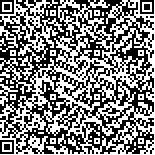| 摘要: |
| There is a class of complex, large-scale systems that are composed of many interacted and spatially distributed subsystems such as the power grids, transportation systems, and large scale chemical processes. With the progress of industrial technology, field bus, integrated circuit technologies and network communication technology, this automation system has taken a totally new configuration in which each subsystem owns only one hardware controller for controlling the subsystem itself, and all hardware controllers are connected by networks for exchanging information with each other or with upper layer controllers. In this distributed (or decentralized) framework, the distributed control algorithms are usually adopted because the classical centralized control solutions are often impractical due to their heavy computational demands and the lack of fault tolerance.... |
| 关键词: |
| DOI: |
|
| 基金项目: |
|
| Towards to dynamic optimal control for large-scale distributed systems |
| S. Li |
| (Department of Automation, Shanghai Jiao Tong University, Shanghai 200240, China) |
| Abstract: |
| There is a class of complex, large-scale systems that are composed of many interacted and spatially distributed subsystems such as the power grids, transportation systems, and large scale chemical processes. With the progress of industrial technology, field bus, integrated circuit technologies and network communication technology, this automation system has taken a totally new configuration in which each subsystem owns only one hardware controller for controlling the subsystem itself, and all hardware controllers are connected by networks for exchanging information with each other or with upper layer controllers. In this distributed (or decentralized) framework, the distributed control algorithms are usually adopted because the classical centralized control solutions are often impractical due to their heavy computational demands and the lack of fault tolerance.... |
| Key words: |

